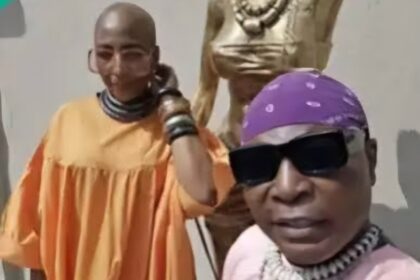Former President Olusegun Obasanjo believes his 1999 decision to retire politically exposed military officers was largely responsible for the current stability of democracy in the country.
Ninety-three military officers who had served as state governors/administrators and ministers were laid off in one fell swoop by Obasanjo, soon after taking office as President in May 1999.
Throwing light on the move in a new book he co-authored “Making Africa Work,” the former president said he was motivated by the desire to put an end to incessant coups in the country.
His words: “A coup is a treason punishable by death only if it fails, and yet it puts the plotter in the State House if it succeeds. It was a destructive and destabilizing practice, wasteful for the military itself, and undermining in terms of discipline, good order and military conduct,” Obasanjo wrote.
“A junior officer takes a gun and looks at his political boss and senior officers through its sights, bumps them off and puts himself in the State House.
“He instantly becomes superior and senior to all political and military officers. Such was the situation existing in Nigeria between 1966 and 1999.
“On assuming office as president, I decided to put an end to these incessant coups. I asked the military to submit the list of all officers who had either participated in coups in the past or benefited in the dividends of coups by being appointed to political office as governors or ministers,” the former president wrote.
“Not knowing what the list was meant for, the military faithfully compiled it and submitted to me as the commander-in-chief and chairman of council of each of the arms of service. Ninety-three officers in all were given six hours’ notice of retirement on a Friday, and ordered not to spend the Friday night in uniform or in barracks to prevent adverse reaction.
“The following Monday, the service council met to ratify the retirement of all the officers. From my vantage position and background as a battle-tested and war-victorious general, I knew that an officer out of uniform and barracks is like a fish out of water, and their power and influence would be greatly diminished.
“The retirement of these 93 officers all in one day was salutary. It meant that taking part in a coup or benefitting from one could catch up with you, no matter how long it takes, and for as long as you are alive.”
Some of those retired at the time, later joined politics and went on to serve in different positions.
These include former military administrator of Lagos State, Prince Olagunsoye Oyinlola, who won election to become governor of Osun State and another ex-military administrator of Lagos State, Colonel Buba Marwa, who served as Nigeria’s High Commissioner to South Africa.
Obasanjo said: “Some of them later entered politics and became elected governors; some went into parliament; others got appointed as ministers and ambassadors.
”The idea was not to punish them for life but to exclude them from positions in the military where they could be coup planners, coup plotters, coup executors or coup beneficiaries.
His co-authors of the book are Greg Mills, Director of Brenthurst Foundation; Jeffrey Herbst, President of NEWSEUM and Dickie Davis, a retired major general.


